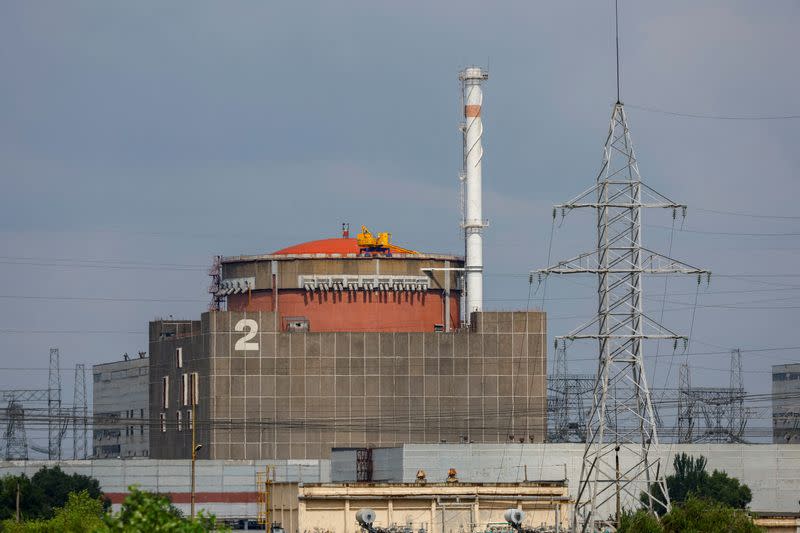Russia says Ukraine's assertions on blowing up nuclear station are lies
MOSCOW (Reuters) - Russia's nuclear chief on Thursday pushed back against Ukrainian assertions that Moscow had plotted to blow up a nuclear power station it controls, saying no evidence supported the claim and that only "a complete idiot" would do such a reckless thing.
Kyiv has repeatedly said that Russian forces planned to blow up the Zaporizhzhia nuclear power station in southern Ukraine.
President Volodymyr Zelenskiy said that Russian forces had mined the roof of several reactors at the plant, Europe's largest, which they seized shortly after launching their full-scale invasion of Ukraine in February 2022.
The International Atomic Energy Agency said on Wednesday it had not seen any mines or explosives during an inspection of the plant, though it said it was waiting for access to the rooftops of reactors No. 3 and No. 4.
"Those who wanted to arrange some sort of provocation there have been exposed," Alexei Likhachev, the general director of Russia's state nuclear corporation, Rosatom, told state television, citing the IAEA observations.
He said the Ukrainian claims about Russia's supposed intentions at the plant were part of an information war against Moscow.
"You would have to be a complete idiot to blow up a nuclear power station where three and a half thousand people work, including a very significant number of people from all over Russia," Likhachev said.
Likhachev said Russian intelligence and information from captured Ukrainian prisoners indicated that Ukraine had in fact had plans to strike the nuclear power station while repeatedly blaming Russia for the attack.
Reuters was unable to verify the claims of either side. Both Russia and Ukraine have accused each other of threatening the safety of the plant.
The IAEA has repeatedly said the plant should not be used for storage or as a base for heavy weaponry. It has also said the plant has enough water - used to cool down reactors and spent nuclear fuel - for some months despite the destruction of the nearby Kakhovka dam.
(Reporting by Guy Faulconbridge; Editing by Gareth Jones)


